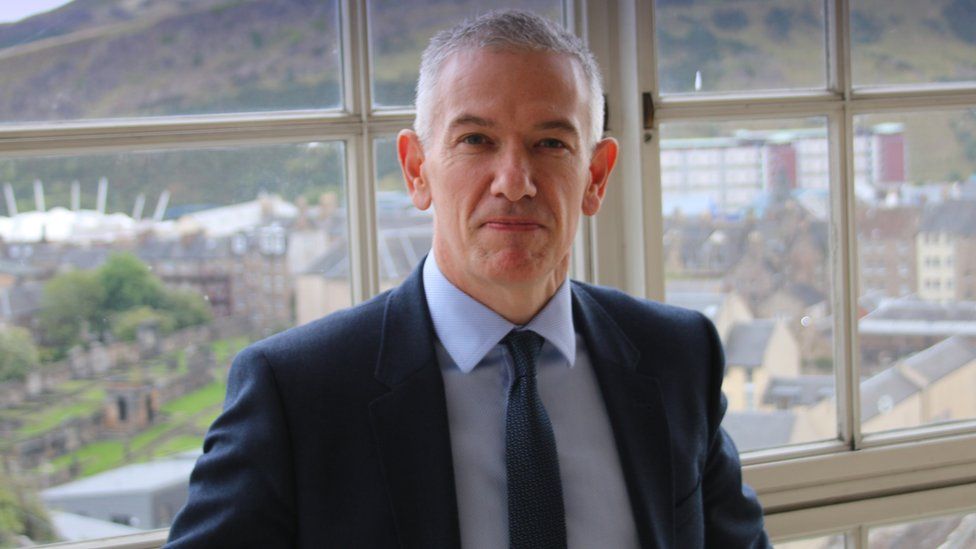Scotland’s chief medical officer has said innovation can help drive sustainable healthcare as the country faces rising disease levels and climate change.
In his annual report, Sir Gregor Smith said healthcare innovation is ‘central to the pursuit of wellbeing, equity, and Scotland’s wider socioeconomic success’.
Sir Gregor, who led on Scotland’s medical response to the Covid pandemic, has said that “looking towards this fairer, climate-resilient and sustainable system means embracing innovation,” and that “rapid adoption of proven innovations is most welcome and much needed”.
In the report, Realistic Medicine: Taking Care, he writes: “Innovation is everyone’s business – and we know that the greatest innovations spring from a place of passion and expertise.
“We can all be innovators and improvers by taking the best of science, technology and new techniques and transforming them into care and outcomes that matter. Improving and innovating must be central to the way we care.”
The report references data from a recent survey of NHS staff, conducted by InnoScot Health – which found that nearly two thirds (64 per cent) of health and social care staff consider themselves innovators.
Graham Watson, executive chair of InnoScot Health, said: “It is clear just how important a role innovation can play in improving NHS Scotland, helping to alleviate pressure points, encouraging smarter, more efficient working, while improving lives and producing better patient outcomes.
“The CMO’s report is a strong, clear, and timely call to action for the workforce during a challenging period.”
Sir Gregor notes that the burden of disease in Scotland is expected to rise by 21 per cent over the next 20 years, with climate change set to disproportionately impact the most vulnerable in society.
However, the CMO also believes that innovation, together with research, can help to mitigate this challenge – that it can “refine and validate new technologies, techniques and treatments” while fostering “collaboration between healthcare professionals, scientists and patients to drive improvements in care and outcomes”.
He said: “There are lots of difficult calls to make, but we cannot afford to move away from our pursuit of research excellence and especially our need to innovate. This is how we ensure that we improve and deliver careful, kind, more sustainable care.”
Mr Watson added: “The team here at InnoScot Health is encouraged by the policy focus on innovation, and the role it can play in working collaboratively with colleagues across the sector to turn the Scottish NHS workforce’s most promising ideas into reality.”
Among many success stories, the report notes that NHS Highland’s specialist renal team has embedded a pathway for kidney replacement therapy which aims to minimise the impact of healthcare on lives and the planet.
This is considered “a great example of locally led climate-first innovation” which has “transformed the service that they deliver” by providing the minimum effective amount of kidney replacement therapy, rather than taking a one-size-fits-all approach.
In just one year, the team prevented 74 tonnes of CO2 from being emitted, saved 53,090 miles of travel, 648,000 litres of water, 3.6 tonnes of non-recyclable waste, as well as generating significant cost savings.
The report further highlights Sir Gregor’s pride in Scotland’s network of innovation test beds which are translating discovery science into reality and improving lives. He also champions the Accelerated National Innovation Adoption(ANIA) pathway which “can ensure the quick and safe rollout of tech innovations” and the Chief Scientist Office (CSO) Innovation Academic Fellowships which will “help strengthen our innovation culture”.
As a leading contributor to the report, Scotland’s Chief Scientist for Health, Professor Dame Anna encourages us all to “grasp the innovation revolution now.”




